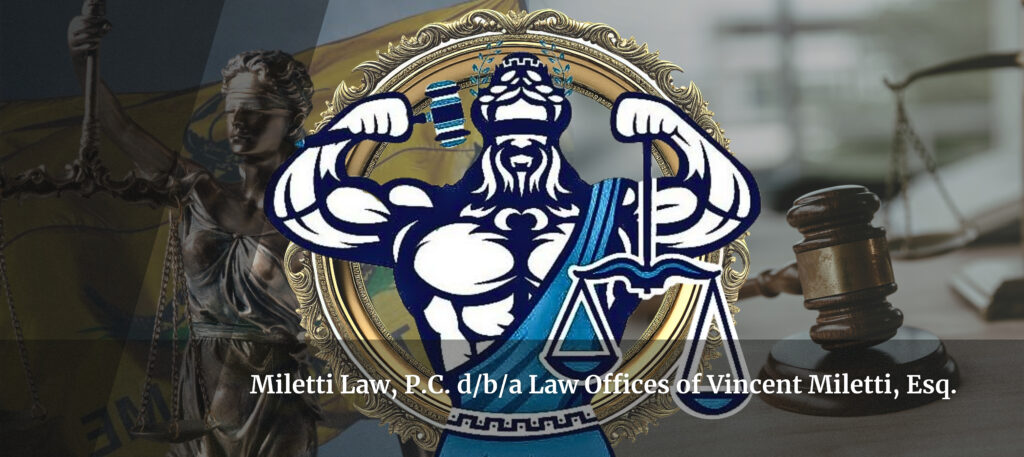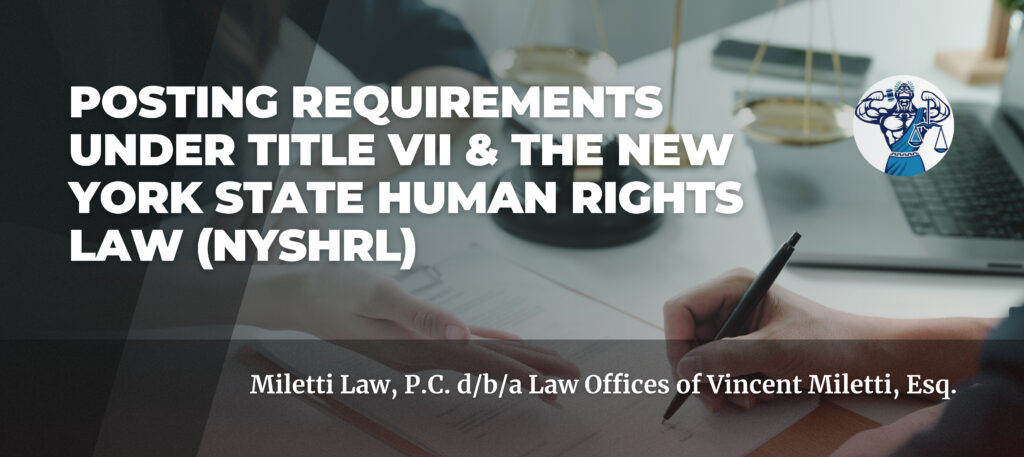It’s not uncommon for someone to feel like they’re being treated unfairly in the workplace. Perhaps they didn’t get the time off they requested, or maybe another employee got a promotion that should’ve gone to them. These are typical things we have to deal with in the American workplace. However, what if such treatment is unethical or illegal? Would you be able to identify what employment discrimination in the workplace looks like?
This is an important question to answer — particularly for those who may be experiencing discrimination. Everyone deserves to work in an environment that’s free of intimidation, bigotry, hostility, and other unprofessional elements. If your employer does not provide such an environment, you may be entitled to compensation for your experience. What is discrimination in the workplace? At the least, it’s unethical. In many cases, though, it’s outright illegal.
Defining Employment Discrimination in the Workplace
Discrimination in the workplace is treating a person or group of individuals differently due to a certain trait. In some instances, there’s nothing wrong with this under the law. For instance, a manager might fire an individual when he finds out they prefer the Giants over the Jets. This is certainly an unethical act, and if it violates an employment contract, it could be grounds for litigation. However, illegal discrimination looks different altogether.
That’s because workplace discrimination laws revolve around differential treatment based on protected characteristics. For instance, a manager could typically fire a Jets fan without major problems — but if that manager fires someone due to their nationality, they have likely broken a law. When someone is treated differently or less favorably due to a status protected by the Equal Employment Opportunity Commission (EEOC) or other agencies, they can take legal action.
What Are Protected Characteristics in the Workplace?
Workplace discrimination involves differential treatment based on protected characteristics, but which characteristics fall into this category? The answer to this question can vary depending on where you live in the country. The federal government lists protected statuses that apply around the nation, but your state or locality may have other statutes that go even further. However, the EEOC protects all the following characteristics on a federal level:
- Race
- Color
- Sex
- Religious affiliation
- Age (40 or over)
- National origin
- Genetic information
- Disability
If you’re an American worker, your employer cannot discriminate against you based on the traits listed above. However, you have even more protections if you’re a citizen of New York. For instance, NY employers cannot discriminate based on credit history, domestic violence victim status, marital status, conviction records (prior to a job offer), military status, and other characteristics not covered in federal law.
Yes, this can be quite complex. That’s why you should contact a New York discrimination attorney if you feel you’re being treated unfairly based on protected statuses.
When Is Employment Discrimination Illegal?
Employment discrimination in the workplace has a very specific definition. However, employees still often ask when such acts become illegal. To put it simply, any on-the-job discrimination deemed illegal by local, state, or federal statutes is against the law. However, what if you’ve got a racist boss? Perhaps you’ve seen questionable social media posts, or maybe a video of your supervisor engaged in racist rhetoric was uploaded to YouTube.
This situation can be tricky. While racist beliefs are absolutely disgusting, they are not, in fact, illegal. You may have some legal recourse if your manager’s off-the-job behavior makes you uncomfortable around them, but this is a conversation best saved for an employment law attorney. If racist or other discriminatory beliefs evolve into unfair treatment or other actions at work, however, your employer has likely violated discrimination laws that you can sue over.
Are You Entitled to Compensation for Employment Discrimination?
If you’ve experienced illegal discrimination in the workplace, there’s a solid chance that you may be entitled to compensation. The level of damages you might receive will depend on the unique circumstances of your situation — including how pervasive, intense, or long-lasting the discriminatory behavior was. If any of the following issues occurred related to a protected status, you may be entitled to compensation:
- Unfair treatment: Lower pay, more intense workloads, less desirable job assignments, etc.
- Harassment: Targeted and unwelcome behaviors that create a hostile work environment, affect employment decisions, interfere with work performance, or become a condition of employment.
- Accommodation refusal: Employers must make accommodations for employees with disabilities or certain religious beliefs.
- Improper questions: Asking employees to disclose medical, health, or genetic information is against the law. In New York, employers also can’t ask about criminal histories prior to making a job offer.
- Retaliation: If you are punished (e.g., demoted, given an undesirable assignment, terminated) for reporting discrimination against you or others, your employer has broken the law.
In any of these situations, you likely have solid grounds to file a lawsuit and seek compensation. The law is very clear on both state and federal levels that these behaviors are not allowed. Such actions create an unsafe environment for employees to work in, and in many cases, they may deter individuals from reporting inappropriate, unethical, and illegal behaviors. Speak with an employment law attorney today to learn more.
What Should You Do if You’re Discriminated Against?
If you’re facing discrimination in the workplace, the best way forward for you will depend entirely on the circumstances you’re facing. This process could look different based on which laws were violated, where the violations occurred, whether emotional distress was suffered, and a variety of other variables. This is why the most important thing you can do is reach out to an attorney. They can help you understand all your options and what’s required of you.
For instance, most federal discrimination claims will first need to be filed with the EEOC. There are some exceptions to this rule, but after filing, the agency will decide whether discrimination occurred. If so, they’ll issue a Notice of Right to Sue. However, you can also file a lawsuit even if the EEOC couldn’t pinpoint discrimination themselves. And if discriminatory acts violated state law, you may not have to go through this process at all.
Obviously, these issues can get complex. Our law firm can help you navigate them.
 Professional Legal & Business Services And Representation - English & Espanol!
Professional Legal & Business Services And Representation - English & Espanol!

 314-648-2586
314-648-2586 CALL US NOW
CALL US NOW








